SLUSDT9B May 2020 – March 2021 UCC23513-Q1
PRODUCTION DATA
- 1 Features
- 2 Applications
- 3 Description
- 4 Revision History
- 5 Pin Configuration and Function
-
6 Specifications
- 6.1 Absolute Maximum Ratings
- 6.2 ESD Ratings
- 6.3 Recommended Operating Conditions
- 6.4 Thermal Information
- 6.5 Power Ratings
- 6.6 Insulation Specifications
- 6.7 Safety-Related Certifications
- 6.8 Safety Limiting Values
- 6.9 Electrical Characteristics
- 6.10 Switching Characteristics
- 6.11 Insulation Characteristics Curves
- 6.12 Typical Characteristics
- 7 Parameter Measurement Information
- 8 Detailed Description
- 9 Application and Implementation
- 10Power Supply Recommendations
- 11Layout
- 12Mechanical, Packaging, and Orderable Information
Package Options
Mechanical Data (Package|Pins)
- DWY|6
Thermal pad, mechanical data (Package|Pins)
Orderable Information
6.12 Typical Characteristics
VCC= 15 V, 1-µF capacitor from VCC to VEE, CLOAD = 1 nF for timing tests and 180nF for IOH and IOL tests, TJ = –40°C to +150°C, (unless otherwise noted)
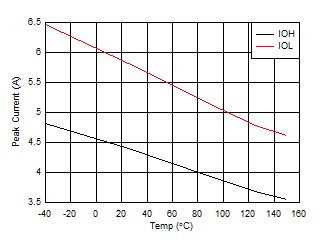
| CLOAD = 180-nF |
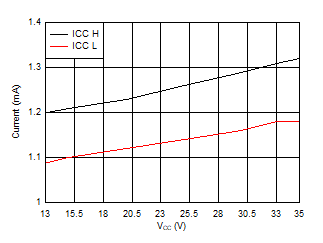 Figure 6-6 Supply current versus Supply Voltage
Figure 6-6 Supply current versus Supply Voltage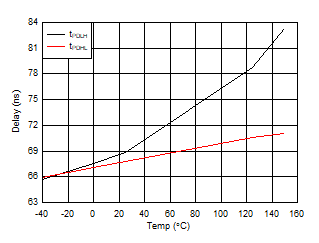
| CLOAD = 1-nF |
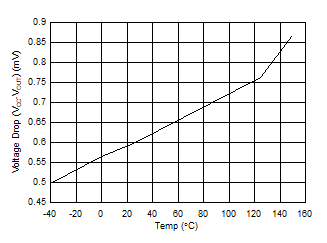
| IOUT = 0mA |
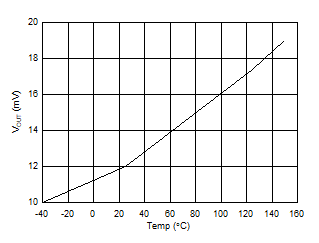
| IOUT = 20mA (sinking) |
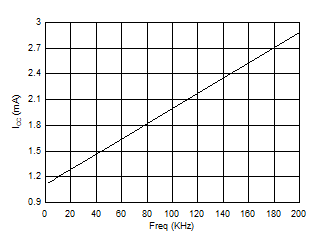 Figure 6-14 Supply current versus Frequency
Figure 6-14 Supply current versus Frequency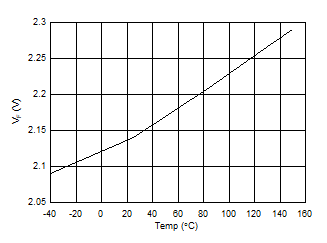
| IF = 10mA |
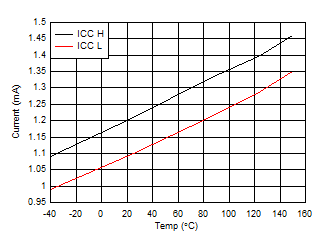 Figure 6-5 Supply currents versus Temperature
Figure 6-5 Supply currents versus Temperature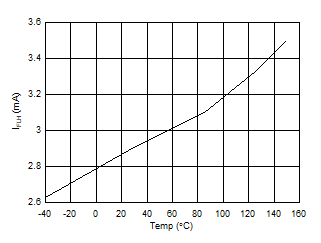 Figure 6-7 Forward threshold current versus Temperature
Figure 6-7 Forward threshold current versus Temperature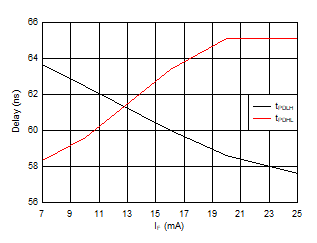
| CLOAD = 1-nF |
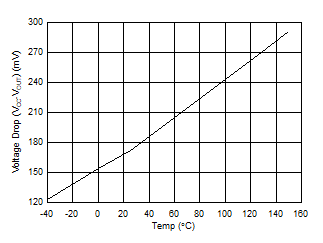
| IOUT = 20mA (sourcing) |
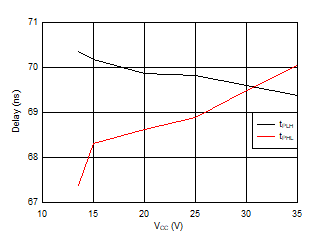 Figure 6-13 Propagation delay versus Supply voltage
Figure 6-13 Propagation delay versus Supply voltage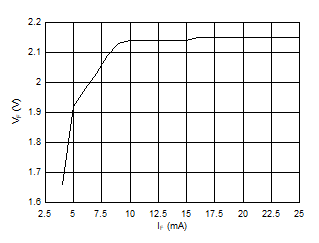
| TA = 25°C |